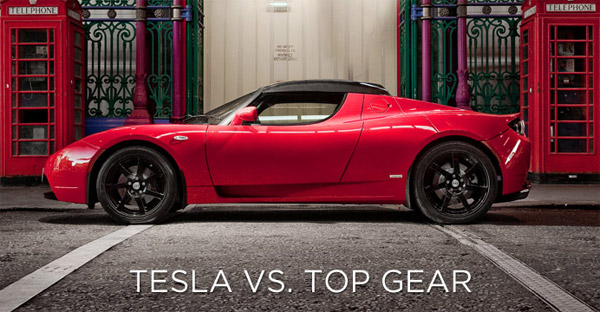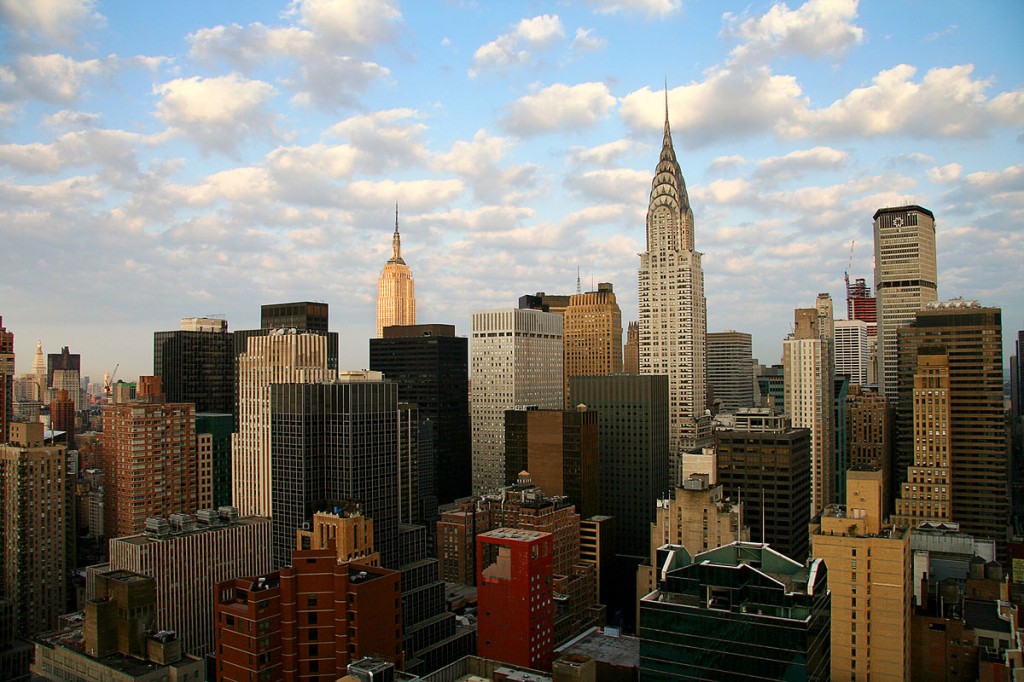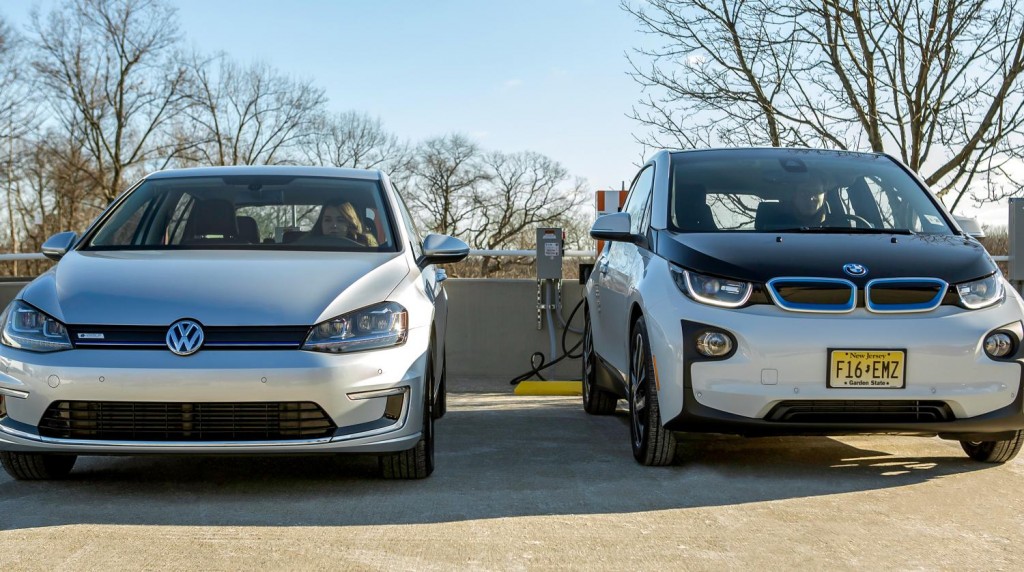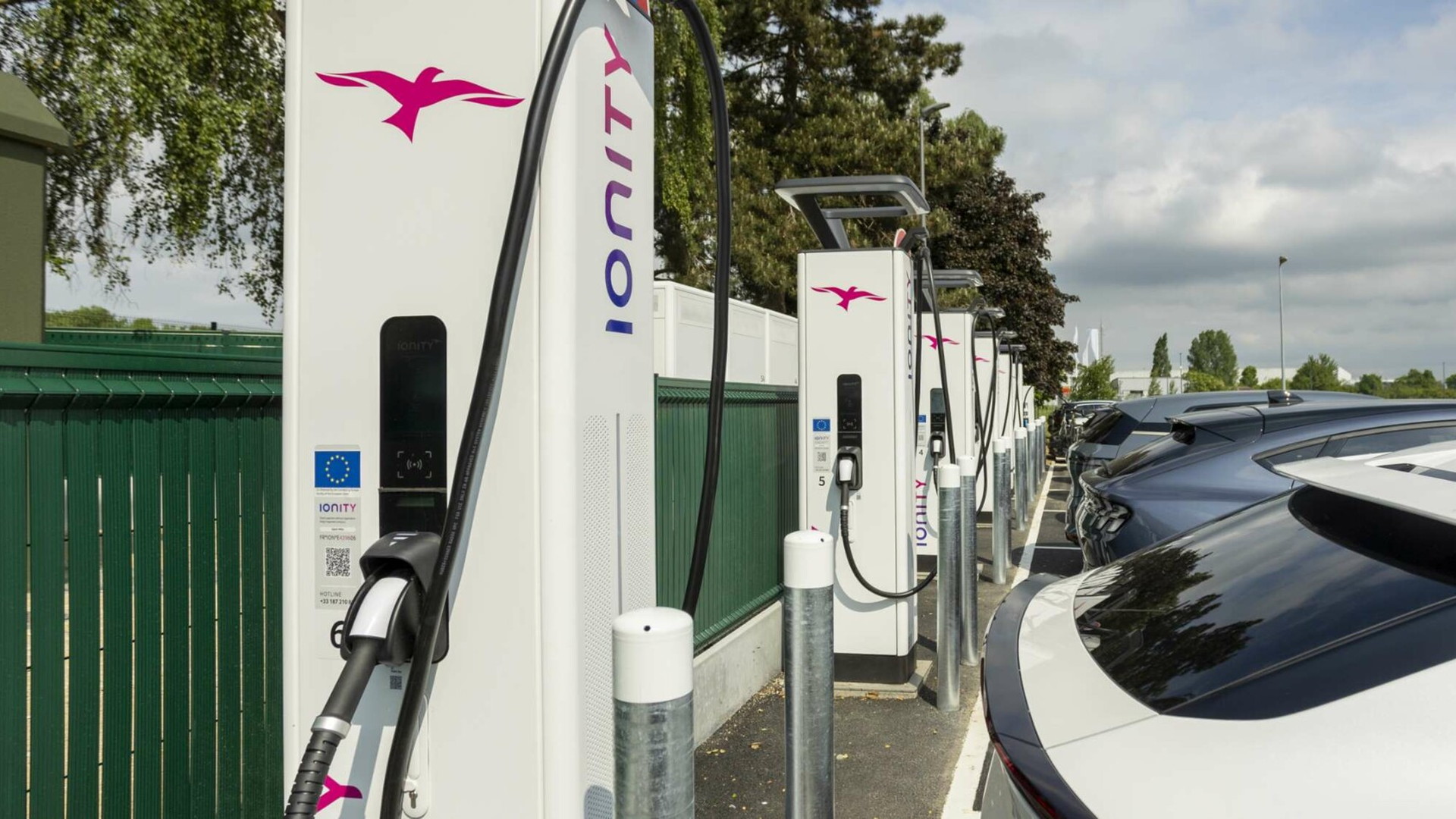![Jeremy Clarkson of The Grand Tour [publicity photo provided by Amazon] Jeremy Clarkson of The Grand Tour [publicity photo provided by Amazon]](https://images.hgmsites.net/lrg/jeremy-clarkson-of-the-grand-tour-publicity-photo-provided-by-amazon_100584177_l.jpg)
Jeremy Clarkson of The Grand Tour [publicity photo provided by Amazon]
Oh, dear. The things celebrities say.
One of three long-time hosts of BBC's long-running "Top Gear" TV show, Clarkson was fired after punching a producer. His costars quit soon afterward.
Now the trio is back in Amazon Prime's new series, "The Grand Tour," and Clarkson has hit the road to do publicity for the show.
DON'T MISS: Tesla Vs BBC: Top Gear Planned Dead Electric Car Shot Before Test (Mar 2011)
He recently sat down with Business Insider to discuss the show and tout the huge viewership of the first episode, the most popular in Amazon's history.
Several years ago, "Top Gear" notoriously tested a Tesla Roadster. It ended that episode showing the car being pushed back into its garage, its battery obviously dead.

Tesla versus Top Gear
Except that Tesla disputed that, noting that the car hadn't actually run out of charge at all.
(The company lost a lawsuit it brought against the BBC over the episode, on the grounds that—according to the judge—Top Gear was entertainment, not reporting, and its viewers were well aware of that.)
Clarkson, who Business Insider describes as "bombastic," apparently hasn't lost his antipathy for electric cars.
In the interview he shares his views on many topics, among them why he prefers hydrogen fuel-cell vehicles to plug-in electric cars.
ALSO SEE: Top Gear Tests Nissan Leaf, Peugeot iOn: A Fair Assessment? (Jul 2011)
"I will never be a fan [sic] plug-in electric cars," he told the interviewer, and explained why with some rather startling assertions.
Let's go down his assertions and fact-check them, shall we?
You have brown-outs in New York already when you have people charging (phones) up, and running lights.
FALSE. Green Car Reports actually has staff who live in the city.
Brownouts largely occur only on the hottest and most humid days of the year, and the culprit is air conditioning.
Lights and mobile phones have nothing to do with it.

New York City skyline (by Flickr user AngMoKio)
America is barely coping with its demand for electricity. Same in Britain. We’re 5 percent and you’re 16 percent under here in the U.S.
DEBATABLE (at best). Electric utilities do a great deal of forward demand projection.
While demand is slowly rising, utilities are well aware of that. Electricity continues to flow reliably to its users in both countries, just as it always has.
We'd be curious to know what Clarkson's statistics refer to; Business Insider doesn't say.
CHECK OUT: Electric-Car-Hating Top Gear Names Fisker Karma Luxury Car Of The Year (Dec 2011)
So, when people start charging their cars up, where’s the power going to come? Who knows. [sic]
FALSE. The implication here is that electric cars will consume enormous amounts of electricity. That is, as Clarkson might say, rubbish.
Utility executives agree that the spike in demand wrought by widespread adoption of cheap home air-conditioners in the 1960s and 1970s was far more disruptive than any projected demand from electric cars could possibly be.
Adoption of cars with plugs has been slower than projected.
![Jeremy Clarkson of The Grand Tour [publicity photo provided by Amazon] Jeremy Clarkson of The Grand Tour [publicity photo provided by Amazon]](https://images.hgmsites.net/lrg/jeremy-clarkson-of-the-grand-tour-publicity-photo-provided-by-amazon_100584177_l.jpg)
Jeremy Clarkson of The Grand Tour [publicity photo provided by Amazon]
And, critically, most electric vehicles are recharged overnight, when demand is at its lowest and greater electricity use actually helps stabilize utility equipment.
For the U.S., a joint study 10 years ago by the Electric Power Research Institute and the Natural Resources Defense Council addressed the question of overall grid impact.
It projected that even if two-thirds of all road miles driven were suddenly powered by today's grid, that would increase overall consumption just 6 to 7 percent.
And that won't happen for decades to come.

2016 BMW X5 xDrive 40e, Hudson Valley, NY, Dec 2015
There may be some local impact on the grid if "Prius clusters" of plug-in cars arrive simultaneously in the same neighborhood.
That can require local transformers to be upgraded—something that utilities routinely plan for and do all the time.
You’ll have to build more power stations. Is that environmentally friendly?
DEBATABLE (at best). As noted above, electric cars are a rounding error in electricity demand now and will remain that way for years to come.
If recharged at night, the vast majority of utilities actually welcome the new demand for a variety of technical and regulatory reasons.
Moreover, new power stations generally are less carbon-intensive than older ones: natural gas is the fuel of choice, and its carbon dioxide emission per kilowatt-hour is far lower than current coal plants.
That doesn't even take into account the increasing proportion of new generating capacity that comes from renewable wind and solar sources.

Photovoltaic solar power field at Volkswagen plant in Chattanooga, Tennessee
By some accounts, unsubsidized solar power is now approaching cost parity with the most efficient large-scale new natural-gas generating plants.
If that curve continues, more and more of the new capacity over the next two decades will be renewable.
The answer is hydrogen. But the more plug-in electric cars that come along, the less demand there is for carmakers to get off their asses and start making fuel cell cars — which is where we must go. We must have fuel cell cars. The world has to have them.
That's an opinion, not a fact, so we can't grade it.
Clarkson, however, appears unaware that it takes roughly three times as much energy to produce the volume of hydrogen that will enable a fuel-cell car to drive 1 mile as it does to charge the battery of an electric car to drive that same mile.
By that measure, hydrogen vehicles will boost electricity demand far more than electric cars to cover the same travel distances.
That doesn't even begin to address the cost of installing a pervasive hydrogen fueling network in every market where fuel-cell vehicles are to be sold.

BMW i3 and Volkswagen e-Golf electric cars using Combined Charging System (CCS) DC fast charging
In the end, Clarkson's assertions on electric cars probably carry less weight than they did in the heyday of Top Gear.
The Tesla Model S hadn't emerged when Clarkson's anti-electric-car views cropped up regularly, and more than a million plug-in electric vehicles are now reliably providing transportation to their owners across the globe.
It's early days yet, but Clarkson's views may come to seem increasingly antiquated as the world's three largest carmakers—General Motors, Toyota, and VW Group—all gear up to produce higher volumes of more electric cars over the next two decades.
Still, we're being told we now live in a post-factual world; perhaps Clarkson has simply lived there longer.
And, hey, why let inconvenient facts get in the way of good TV and effective product promotion?
_______________________________________













